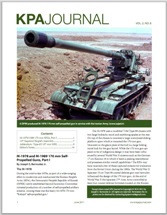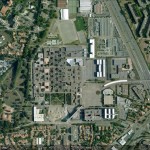UPDATE (2012-2-1): Karin Lee of the National Committee on North Korea wrote a great summary of the DPRK’s food situation in 2011:
In December 2010, North Korea began asking multiple countries for food aid. Its request to the U.S. came in early 2011, but it wasn’t until December 2011 that a deal seemed close, with the U.S. prepared to provide 240,000 metric tons (MTs) of assistance. Kim Jong Il died soon after this news hit the press, and details of the potential deal were never announced.
In the ideal world, Ronald Reagan’s “hungry child” knows no politics. But the case of North Korea is far from ideal. The U.S. government states it does not take politics into consideration when determining whether to provide aid to North Korea. Instead, the decision is based on three criteria: need in North Korea, competing demands for assistance, and the ability to monitor aid effectively. Yet these three criteria are subjective and tinged by politics.
In 2011 a succession of four assessment delegations (one by U.S. NGOs, one by the U.S. government, one by the EU and one by the UN) visited the DPRK. All found pretty much the same thing: widespread chronic malnutrition, especially among children and pregnant or lactating women, and cases of acute malnutrition. The UN confirmed the findings late last year, reporting chronic malnutrition in children under five in the areas visited — 33% overall, and 45% in the northern part of the country.
Some donors responded quickly. For example, shortly after its July assessment, the EU announced a 10 Million Euro donation. Following its own May assessment, however, the U.S. government was slow to make a commitment. Competing demands may have played a role. In July, the predicted famine in the Horn of Africa emerged, prompting a U.S. response of over $668 million in aid to “the worst food crisis in half a century.” While there was no public linkage between U.S. action on the African famine and inaction on North Korea, there could have been an impact.
But the two biggest factors shaping the U.S. government’s indecisiveness continued to be uncertainty about both the severity of the need and the ability to establish an adequate monitoring regime. At times, South Korean private and public actors questioned the extent of the North’s need. Early on, a lawmaker in South Korea asserted that North Korea already had stockpiled 1,000,000 metric tons of rice for its military. Human rights activist Ha Tae Keung argued that North Korea would use the aid contributed in 2011 to augment food distributions in 2012 in celebration of the 100th birthday of Kim Il Sung and North Korea’s status as a “strong and prosperous nation.” According to Yonhap, shortly after the U.N. released the above-noted figures, South Korean Unification Minister Yu Woo-Ik called the food situation in North Korea not “very serious.”
South Korea’s ambivalence about the extent of the food crisis was noted by Capitol Hill, exacerbating congressional reluctance to support food aid. A letter to Secretary Clinton sent shortly before the U.S. assessment trip in May began with Senators Lieberman, McCain, Webb and Kyl explaining they shared South Korean government suspicions that food aid would be stockpiled and requesting State to “rigorously” evaluate any DPRK request for aid. With the close ROK-U.S. relationship one of the administration’s most notable foreign policy accomplishments, such a warning may have carried some weight.
Monitoring is of equal, if not greater congressional concern. Since the 1990s U.S. NGOs and USAID have worked hard with DPRK counterparts to expand monitoring protocols, and conditions have consistently improved over time. In the 2008/2009 program, the first food program funded by the U.S. government since 2000, the DPRK agreed to provisions such as Korean-speaking monitors. The NGO portion of the program was fairly successful in implementing the monitoring protocol; when implementation of the WFP portion hit some bumps, USAID suspended shipments to WFP until issues could be resolved. The DPRK ended the program prematurely in March 2009 with 330,000 MT remaining.
In 2011 the Network for North Korean Human Rights and Democracy conducted a survey of recent defectors to examine “aid effectiveness” in the current era. Out of the 500 interviewees, 274 left the DPRK after 2010. However, only six were from provinces where NGOs had distributed aid in 2008/2009. Disturbingly, of the 106 people interviewees who had knowingly received food aid, 29 reported being forced to return food. Yet the report doesn’t state their home towns, or when the events took place. Unfortunately such incomplete data proves neither the effectiveness nor ineffectiveness of the most recent monitoring regime.
Some believe that adequate monitoring is impossible. The House version of the 2012 Agricultural Appropriations Act included an amendment prohibiting the use of Food for Peace or Title II funding for food aid to North Korea; the amendment was premised on this belief. However the final language signed into law in November called for “adequate monitoring,” not a prohibition on funding.
The U.S. response, nine months in the making, reflects the doubts outlined above and the politically challenging task of addressing them. It took months for the two governments to engage in substantive discussions on monitoring after the May trip. In December, the State Department called the promised nutritional assistance “easier to monitor” because items such as highly fortified foods and nutritional supplements are supposedly less desirable and therefore less likely to be diverted than rice. The reported offer of 240,000 MT– less than the 330,000 MT the DPRK requested – reflects the unconfirmed report that the U.S. identified vulnerable populations but not widespread disaster.
In early January, the DPRK responded. Rather than accepting the assistance that was under discussion, it called on the United States to provide rice and for the full amount, concluding “We will watch if the U.S. truly wants to build confidence.” While this statement has been interpreted positively by some as sign of the new Kim Jong Un regime’s willingness to talk, it also demonstrates a pervasive form of politicization – linkage. A “diplomatic source” in Seoul said the December decision on nutritional assistance was linked to a North Korean pledge to suspend its uranium enrichment program. Linkage can be difficult to avoid, and the long decision-making process in 2011 may have exacerbated the challenge. Although Special Representative Glyn Davies was quick to state that “there isn’t any linkage” between the discussion of nutritional assistance and dialogue on security issues, he acknowledged that the ability of the DPRK and US to work together cooperatively on food assistance would be interpreted as a signal regarding security issues. Meanwhile, the hungry child in North Korea is still hungry.
UPDATE 75 (2011-12-5): The ROK will donate US$5.65 million to N. Korea through the UN. According to Yonhap:
South Korea said Monday it will donate US$5.65 million (about 6.5 billion won) for humanitarian projects in North Korea through the U.N. body responsible for the rights of children.
The donation to the United Nations Children’s Fund, or UNICEF, will benefit about 1.46 million infants, children and pregnant women in North Korea, according to the Unification Ministry, which is in charge of relations with the North.
Seoul’s contribution will be used to provide vaccines and other medical supplies as well as to treat malnourished children next year, said the ministry.
There have been concerns that a third of all North Korean children under five are chronically malnourished and that many more children are at risk of slipping into acute stages of malnutrition unless targeted assistance is sustained.
“The decision is in line with the government’s basic stance of maintaining its pure humanitarian aid projects for vulnerable people regardless of political situation,” Unification Ministry spokesman Choi Boh-seon told reporters.
South Korea has been seeking flexibility in its policies toward the North to try to improve their strained relations over the North’s two deadly attacks on the South last year.
Despite the South’s softer stance, North Korea recently threatened to turn Seoul’s presidential office into “a sea of fire” in response to South Korea’s military maneuvers near the tense western sea border.
South Korea donated $20 million for humanitarian projects in North Korea through the UNICEF between 1996 and 2009.
Last month, the South also resumed some $6.94 million worth of medical aid to the impoverished communist country through the World Health Organization.
…
Separately, South Korea also decided to give 2.7 billion won ($2.3 million) to a foundation to help build emergency medical facilities in an industrial complex in the North Korean border city of Kaesong.
UPDATE 74 (2011-12-2): The Choson Ilbo reports that the DPRK’s food prices are rising after the 2011 fall harvest, however, the price increase is not due to a shortage of output, but rather political directives. According to the article:
The price of rice in North Korea is skyrocketing, contrary to received wisdom that it drops after the harvest season. According to a source on North Korea on Wednesday, the rice price has risen from 2,400 won a kg in early October to 5,000 won in late November.
North Korean workers earn only 3,000-4,000 won per month.
This unusual hike in rice price seems to be related to preparation of next year’s political propaganda projects.
A South Korean government official said, “It seems the North Korean government is not releasing rice harvested this year in order to save it up” for celebrations of regime founder Kim Il-sung’s centenary next year, when the North has vowed to become “a powerful and prosperous nation.”
UPDATE 73 (2011-11-24): According to the Daily NK, DPRK television is calling on people to conserve food:
With barely a month left until 2012, the year in which people were promised a radical lifestyle transformation to coincide with the North Korea’s rebirth as a ‘strong and prosperous nation’, programs calling upon people to conserve food are now being broadcast by Chosun Central TV and the fixed-line cable broadcaster ‘3rd Broadcast’.
Chosun Central TV is broadcasting the programs as part of ‘Socio-Culture and Lifestyle Time’, which begins directly after the news on Thursdays at 8:40pm. The majority of the content is apparently now about saving food.
A Yangkang Province source told The Daily NK on Wednesday, “Recently the head lecturer from Jang Cheol Gu Pyongyang Commercial University, Dr. Seo Young Il, has been appearing on the program both on television and the cable broadcasting system, talking about saving food.”
In one such program, Professor Seo apparently noted, “In these days of the military-first era there is a new culture blossoming, one which calls for a varied diet,” before encouraging citizens to eat potatoes and rice, wild vegetables and rice and kimchi and rice rather than white rice on its own, and then adding that bread and wheat flour noodles are better than rice for lunch and dinner.
It is understood that older programs with titles such as ‘A Balanced Diet is Excellent Preparation for Saving Food’ and ‘Cereals with Rice: Good for Your Health’ are also being rebroadcast, while watchers are being informed that thinking meat is required for a good diet is ‘incorrect’.
Whenever North Korea is on high alert or there is a directive to be handed down from Kim Jong Il, both of Chosun Central TV and the 3rd Broadcast are used to communicate with the public. For this reason, some North Korea watchers believe the recent food-saving campaign may reflect a particularly weak food situation in the country going into the winter.
According to the source, one recent program showed a cookery competition involving members of the Union of Democratic Women from Pyongyang’s Moranbong District. During which, one woman was filmed extolling the virtues of potato soup, saying “If we follow the words of The General and try eating potatoes as a staple food, there will be no problem.”
Read all previous posts on the DPRK’s food situation this year blow:
(more…)


